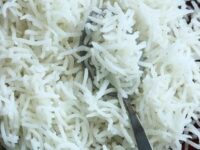Expert Insights: Dietary Recommendations to Address India’s Disease Burden

ICMR guidelines stress the importance of maintaining a balanced diet and adopting a healthy lifestyle to prevent obesity.
ICMR guidelines suggest that healthy diets and physical activity can significantly reduce coronary heart disease, hypertension, and prevent up to 80% of Type 2 diabetes cases
The Indian Council of Medical Research (ICMR) and the National Institute of Nutrition (NIN) have recently issued dietary guidelines aimed at combating malnutrition and addressing the growing rates of diseases like diabetes, heart conditions, and obesity in India. These guidelines stress the importance of maintaining a balanced diet and adopting a healthy lifestyle to prevent obesity.
They highlight regular exercise, avoiding processed foods, reducing salt intake, and reading food labels for informed and health-conscious choices. It’s estimated that 56.4% of India’s disease burden comes from unhealthy diets. The NIN found that 34% of children aged 5 to 9 have high triglyceride levels.
The guidelines also suggest that healthy diets and physical activity can significantly reduce coronary heart disease, hypertension, and prevent up to 80% of Type 2 diabetes cases. These new guidelines follow the NIN’s nutritional review in 2020, with similar assessments done in 2010 and dietary guidelines issued in 2011.
Edwina Raj, Head of Services, Clinical Nutrition & Dietetics, Aster CMI Hospital, says, “The ICMR’s latest dietary guidelines highlights the unhealthy diets as a major cause (56.4%) of India’s disease burden. To combat this, it promotes healthy eating habits. The rise in processed foods, high sugar/fat intake, and low physical activity are areas of concern. These factors worsen micronutrient deficiencies and contribute to overweight/obesity, replacing earlier undernutrition issues.”
However, it needs to be noted that the information is for the public and offers general advice to prevent lifestyle diseases.
Vinusha, MSC Clinical nutrition and Dietetics, Apollo Clinic, HSR Layout, Bengaluru, says, “The new guidelines tell us about the need to combat obesity, diabetes and heart diseases. It also has major suggestions on balanced diet to prevent obesity. It provides suggestions on how to prevent major sugar intake, which is required as I see several diabetes cases.”
Vinusha shares, “What is lacking in it right now is the importance of pre and probiotics in our diet as well as its benefits. My recommendations are to highlight the importance of essential amino acids in diet, precursor of proteins and doing physical activity daily.”
However, it needs to be noted that the information is for the public and offers general advice to prevent lifestyle diseases.
Raj adds, “It’s not a substitute for professional guidance. One should consult a qualified dietitian for personalized recommendations, especially if one has a health condition or are hospitalized. While the report advises limiting alcohol intake to 2 drinks per week (one drink = 30ml of alcohol), it acknowledges the lack of specific recommendations for Indians based on gender and clinical data.”
Raj shares some key recommendations:
- Limit cooking oils
- Use nuts and fish for healthy fats
- Earthenware cookware is safe
- Eco-friendly and needs less oil
- Granite cookware is safe without Teflon coating. Non-stick pans with Teflon can be risky at high heat and should be replaced when worn
- Include millets (30-40% daily cereals) for gut health and fiber. Read food labels to make healthy choices.
- Aim for 10 food groups daily (“My Plate for the Day”)
- Include microgreens in your diet.
Caution: Avoid routine protein supplements; high intake can harm kidneys.

Atul Tiwari is a seasoned journalist at Mumbai Times, specializing in city news, culture, and human-interest stories. With a knack for uncovering compelling narratives, Atul brings Mumbai’s vibrant spirit to life through his writing.





